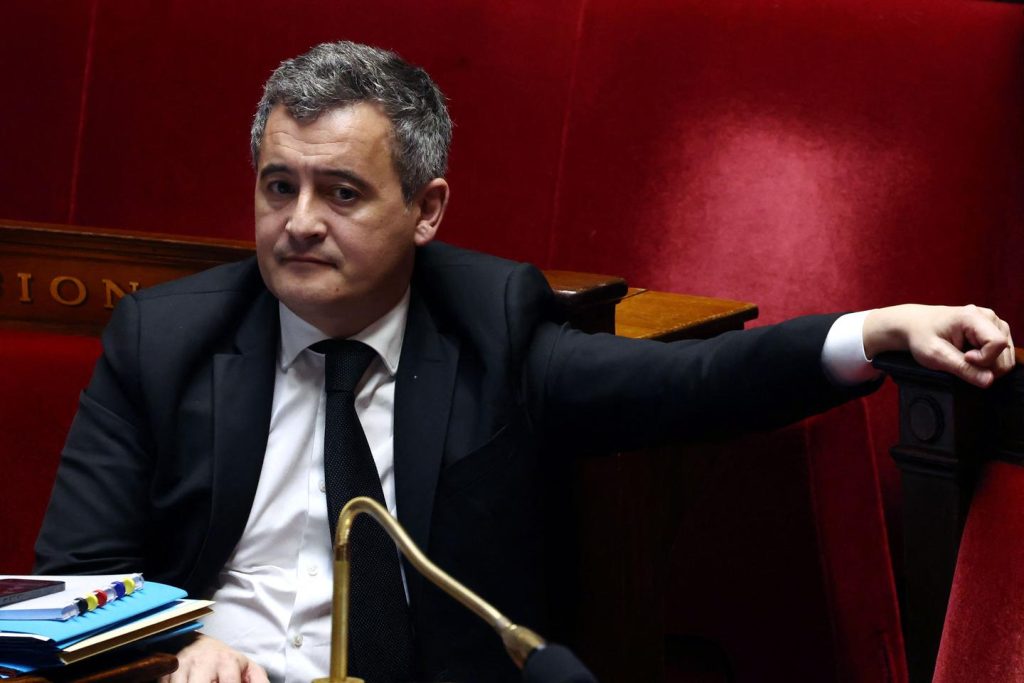Gérald Darmanin Proposes Streamlining Expulsion Procedures Amid Controversy
Gérald Darmanin, France’s Minister of the Interior, has sparked fresh debate after proposing changes to the country’s expulsion procedures. Speaking on BFM-TV on February 9, 2024, Darmanin suggested accelerating the process by eliminating an ad hoc commission, known as the Comex, which currently reviews expulsion cases. This proposal comes in response to the recent cancellation of the expulsion of Algerian influencer Boualem Naman, known by his nickname "Doualemn," by an administrative court. Darmanin argued that the current system is too slow and bureaucratic, emphasizing that France must retain the ability to expel foreign nationals when necessary. He also hinted that if the courts continue to oppose his efforts, legislative changes may be required to ensure the government’s authority in such matters.
The Comex: A Commission Under Fire
Central to Darmanin’s proposal is the abolition of the Comex, a commission of magistrates responsible for evaluating expulsion decisions. The Minister asserted that the emergency expulsion procedure, which bypasses the Comex, is faster and more efficient. However, the administrative court’s ruling in Naman’s case highlighted that this procedure is reserved for individuals deemed a significant threat, such as terrorists. Darmanin criticized the Comex for causing delays, stating that the French public is growing increasingly frustrated with the lengthy process. While the Comex provides an advisory opinion, Darmanin admitted that he does not always follow its recommendations, further fueling his argument for its elimination.
A Shift in Citizenship Policy: The "Law of the Soil" Debate
Darmanin also weighed in on the contentious issue of citizenship, advocating for a change to the "law of the soil" principle, which currently grants citizenship to children born in France to foreign parents. He proposed that such individuals should instead be required to actively express their desire to become French citizens once they reach a certain age, such as 16, 18, or 21. Darmanin emphasized that becoming French should be a conscious choice, tied to mastering the French language, understanding the country’s history, and embracing its values. He rejected the idea of automatic citizenship, arguing that it is not about distinguishing people by their religion, origin, or skin color, but about fostering a sense of national identity.
Tensions with Algiers and the Naman Case
The controversy surrounding Boualem Naman has also strained relations between France and Algeria. Naman, an Algerian influencer, had been slated for expulsion, but the administrative court overturned the decision, citing the misuse of the emergency procedure. Darmanin’s comments on the matter have been interpreted as a direct challenge to the judiciary’s authority, sparking concerns about the balance of power in the French government. Meanwhile, the case has become a symbol of broader tensions between Paris and Algiers, with some viewing it as an example of France’s hardening stance on immigration and national security.
Political Support and Controversy
Darmanin’s proposals have received mixed reactions within the French political landscape. Bruno Retailleau, a fellow politician, expressed support for the Interior Minister’s stance, echoing his desire to expel individuals who "spit on France." Darmanin also drew attention for his comments on Robert Ménard, the mayor of Béziers, who faces trial for refusing to officiate the marriage of a French woman and an Algerian national in an irregular situation. Darmanin advocated for legal changes that would allow mayors to oppose such marriages, signaling his support for stricter policies on immigration and integration.
National Identity and the Future of Immigration Policy
Darmanin’s remarks reflect a broader shift in France’s approach to national identity and immigration. He framed his proposals as a "radical evolution" rather than a revolution, emphasizing the need for individuals to actively embrace French citizenship. While the debate over the "law of the soil" has divided the government coalition, Darmanin assured critics that there is agreement on the essential issues. He also acknowledged that the upcoming presidential election would play a crucial role in shaping the direction of these policies. As France grapples with questions of identity, security, and integration, Darmanin’s proposals are likely to remain at the center of political discourse.












